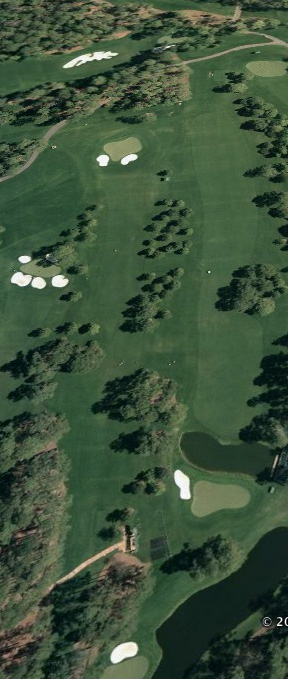 This was a serious lovefest after the Hootie years. Thanks largely to Billy Payne's shrewd handling of course. Novel concept, this honest, straightforward no-nonsense stuff.
This was a serious lovefest after the Hootie years. Thanks largely to Billy Payne's shrewd handling of course. Novel concept, this honest, straightforward no-nonsense stuff.
Still, it would have been nice if he was grilled a bit on a few topics.
On the reduction of the top 40 PGA Tour money winner qualification to top 30 along with the top 30 at the end of the FedEx Cup playoffs:
We have applied these new 2008 qualifications over the last five years, and I can report that the field size over those years would have been on average one or two players larger.
And because he's smart and wants to make sure we don't think this was a rescinding of a bad Hootie Johnson idea...
Q. Could you talk about what led you to your decision about the qualifications changes and particularly the PGA TOUR winners?
CHAIRMAN PAYNE: Well, I cannot take credit for that. That's something my predecessor was thinking about and talking about, encouraged me to take a hard look at. And, you know, he was preaching to the choir.
I can remember innumerable times where winners of tournament events would be more excited to hear that they had automatically qualified for the Masters than to receive the first prize money check. So it was an exciting component of golf that really only the Masters could offer, and we all thought it appropriate that we bring it back.
Funny, Hootie had every chance to reverse it and he didn't. But we admire the humility and the respect for your elders.
As for the golf course:
CHAIRMAN PAYNE: You know, as I reflect back last year when very significant changes were made, and those that preceded it in '98 and 2002, I was very proud of the way that the course was able to identify the best golfer and that linked with not necessarily the only component of one's game that made them competitive. I think last year demonstrated that conclusively. I think the order of finish demonstrated that conclusively. I think that we've got it about right.
So I would not anticipate substantive changes in the near future, but I would have to caveat that by saying that we certainly measure flight and roll distance, and will be always aware of the quality of the challenge that the golf course presents to these great players.
The quality of the challenge. Yes, the second cut and trees do reduce the quality of the challenge, don't they?
Here's a brilliant question from the gallery:
Q. Do you anticipate scoring being somewhere on the level of last year?
CHAIRMAN PAYNE: Well, I can't predict what the scoring is going to be, but we're certainly going to set up the golf course to be as good and as fair a test as we can.
Like it's the third quarter report and Payne is the CFO. Sheesh.
The dreaded technology question:
Q. Wonder if you could elaborate a little on your perception of Augusta's role in the battle between technology and maintaining golf courses of this tradition.
CHAIRMAN PAYNE: Well, of course I can speak only for Augusta, but I certainly can, I believe, articulate, enunciate, emphasize the problem that we think exists that potentially threatens us and other great courses of the world. With the combination of physical conditioning and equipment over the last several years, as you all know better than I do,
Oh I wouldn't be so sure of that...sorry,continues...
some of these great courses have been significantly threatened. We were at a point at one time, as Tiger said the other day, where Augusta National was being played with driver and wedge on all par 4 holes, and that was not the original intention of our founders.
My predecessor and those before him had the courage to do something about it.
Well, courage? More like desire to make sure red numbers weren't splattered all over the board while they were in charge...
It's something that we must be always aware of and never, ever be afraid to do whatever we have to do to protect that which is in our opinion necessary to accomplish to protect this great course. That's what we're going to do.
Q. Has the club ever conducted a study on how long you could make the course if you wanted to stretch it out as far as you can, and if so, what was that number?
CHAIRMAN PAYNE: I don't know that number, but I would guarantee you we've studied everything you can study.
Let's hope he's studying how move fairway back to the trees and chop down some pines.
























